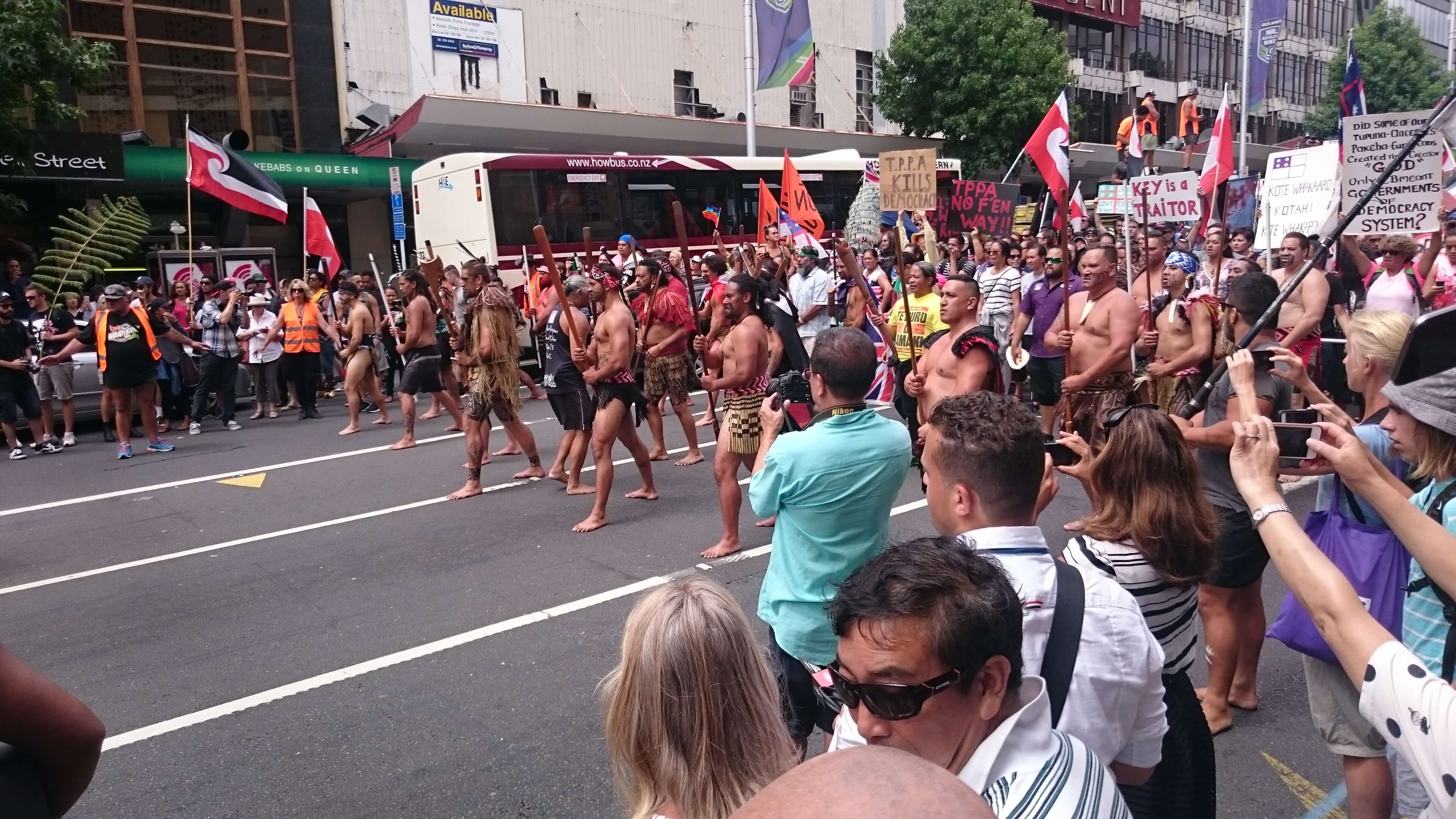
Prime Minister Justin Trudeau’s so-called ‘Comprehensive and Progressive Agreement for Trans-Pacific Partnership’ (CPTPP) – to be signed on March 8 in Chile – is a violation of Indigenous rights.
While the text of the CPTPP has not yet been made public, and may not be until after the signing ceremony, it can be assumed:
In January 2016, the Tangata whenua (a Māori term for the indigenous peoples of New Zealand) stated, “The New Zealand government has by-passed indigenous involvement at every level. This complete lack of consultation also contravenes UNDRIP and the government has no right to sign this trade deal without our free, prior and informed consent. The government does not have the right to negotiate away our rights under Te Tiriti [the 1840 Treaty of Waitangi in which the British recognized Māori ownership of their lands] and our rights as Indigenous peoples.”
In February 2016, Telesur reported, “The TPP seriously threatens indigenous land rights, as well as the natural resources they preserve, UN Special Rapporteur on the Rights of Indigenous Peoples Victoria Tauli-Corpuz said. The major issue with the TPP is ‘the clause of non-discrimination between a local and an international investor it grants more rights to transnational firms, often at the expense of indigenous rights’, she said in an interview with the International Work Group for Indigenous Affairs.”
Also in February 2016, just prior to then-trade minister Chrystia Freeland attending the signing ceremony for the TPP, Radio New Zealand reported, “Ngāti Whātua o Ōrakei, the mana whenua [local people who have ‘demonstrated authority’ over territory] in Auckland central where the signing is to take place, has refused to participate because it believes the multinational trade deal will undermine the country’s sovereignty. Five more Auckland iwi [nations] are refusing to perform the Māori welcome, as are all of Auckland’s usual haka [traditional war cry] groups.”
In October 2016, the Council of Canadians Northwest Territories chapter presented to the House of Commons Standing Committee on International Trade. The chapter argued, “The TPP and associated processes threaten Aboriginal rights, title, and treaty rights. Advocates of the rights of First Nations are extremely concerned the Government of Canada signed the TPP without consultation or consideration of the constitutionally protected, judicially recognized, and internationally enshrined rights of Indigenous peoples. Trade agreements prioritize corporate rights over Aboriginal and citizens’ rights.”
The signing of the CPTPP in Chile is also notable given the struggle of the Mapuche peoples in that country.
The Miami Herald has reported, “The epicenter of the conflict is the Araucanía region. It’s here that many of Chile’s Mapuche people live, the group at the heart of the dispute and 9 percent of the population. The Chilean army invaded the Araucanía region in 1861. It was then that the Mapuche people lost the majority of its land. Key to the dispute is an Indigenous law that dates to 1993 that only acknowledges Indigenous land rights claim based on legal paperwork from several decades after the army’s invasion — and when the Mapuche had already lost the majority of their land. It fails to recognize ancestral claims.”
It will sound familiar to Indigenous people and their allies in Canada that the Mapuche fought against the Ralco hydroelectric dam (completed in 2004) that flooded their tribal land in a valley including a graveyard, that their land is under assault by transnational mining and logging corporations, and that many of their peoples suffer from poverty and a lack of access to clean drinking water.
Ana Llao Llao, the Mapuche representative to the Inter-American Commission on Human Rights (IACHR), has stated that ‘free trade’ agreements should be assessed on its impacts on human rights, with a special emphasis on Indigenous rights, prior to the ratification process. At an IACHR hearing on the TPP, she stated, “The logging industry is expanding in Chile due to free trade agreements, and its activities have a direct impact on the Mapuche people’s access to their lands and the biodiversity of their territory.”
The Council of Canadians opposes the CPTPP and expresses solidarity with Indigenous and wider community mobilizations to stop its ratification.

Indigenous Peoples are putting their bodies on the line and it's our responsibility to make sure you know why. That takes time, expertise and resources - and we're up against a constant tide of misinformation and distorted coverage. By supporting IC you're empowering the kind of journalism we need, at the moment we need it most.